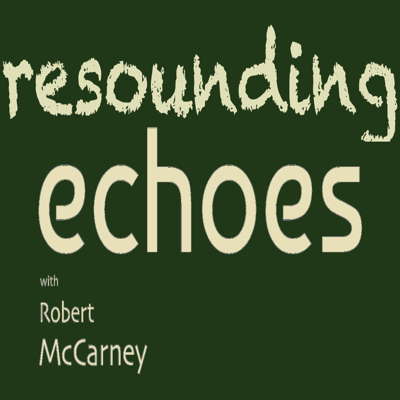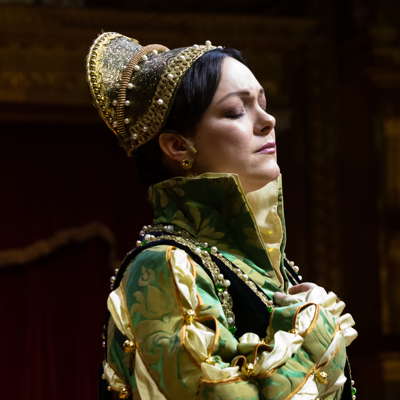- Luis Gianneo
- Carolyn Schurmann
- Mei Baojiu
- Robert Pearsall
- Leandra Ramm
- Mozart: Violin Sonata in F K 377
- Carlos Païta
- UK National Theatre
An Innovative Approach
GIUSEPPE PENNISI experiences three operas from the 2020 Donizetti Opera Festival
The Donizetti Opera Festival 2020 has had an innovative approach. Three of its operas were premiered the evenings of 20, 21 and 22 November according to an unusual arrangement. The first, Marin Faliero, was shown live on Italian State TV on 20 November, whilst the other two, Belisario and Le Nozze in Villa, were shown the following evenings on Donizetti Web TV; the access is donizetti.org/tv
There is a subscription for the three operas (49 euros) that can be seen not only on the opening nights but for the next three months at any time and from anywhere. It is also possible to buy a subscription for only one opera at 30 euros.
Marino Faliero (or Marin Faliero) is a tragedia lirica, or tragic opera, in three acts. It is inspired by Lord Byron's drama and based on the life of Marino Faliero (c1285-1355), a Venetian Doge. Rossini had influenced the management of the Parisian Théâtre-Italien to commission works from outstanding Italian composers of the day — Gaetano Donizetti and Vincenzo Bellini. Both wrote operas for that house, Bellini's contribution being the hugely successful I puritani. Donizetti's opera, which premiered on 12 March 1835 - a few months after I puritani - was not nearly as much of a success. However, it was Donizetti's first opera to have its premiere in Paris. After the Paris premiere, Marino Faliero was presented in London at Covent Garden on 14 May 1835 and at the Teatro Alfieri in Florence in 1836. Its first appearance in the United States took place at the St Charles Theatre in New Orleans in 1842. The opera had a number of productions in the nineteenth century, but by the twentieth century it had become a rarity. It was revived for a concert performance by Italian Radio in 1976 and for stage productions in Parma in 2002 and in Bergamo for the Donizetti Opera Festival in 2008.
According to historians, within months of being elected Doge of Venice, Faliero attempted a coup d'état, aiming to take effective power from the ruling aristocrats. This move was consistent with a prevailing trend in Italian cities to move away from oligarchic government to absolute, dynastic rule. This is important to know because in the current production, the stage directors - the performing arts ensemble Ricci/Forte - state that the opera is 'highly political and very topical today' because Faliero is a leader of the populace against the establishment. I doubt that Lord Byron had anything like that in mind and that in 1835 Donizetti intended to head the gilets jaunes and les misérables of the time against the institutions. I would advise Ricci/Forte to read some serious historians when dealing with Venitian Doges.
The libretto is a gothic and gloomy plot of conspiracy, corruption, love and betrayal. Donizetti's score is nearly as dark as that of Lucrezia Borgia that had its debut two years earlier at La Scala.
The production leaves a lot to be desired. It was probably conceived before the current lockdown, when - eg in the previous lockdown - theatres could use only a fraction of their seats and in order to provide adequate spacing, would host audience in the boxes.
In the lovely and freshly redecorated Donizetti Theatre, the orchestra is in the usual pit and the action takes place on scaffolding in the area of the orchestra seats. There are several layers of scaffolding: the singers sing and act climbing up and down this structure and walking on narrow pathways. They are, of course, in semi-contemporary attire. This three dimensional structure does not at all suit TV screening which is inherently flat with only two dimensions. For additional confusion, extras and mimes seem to do exercises on the scaffolding while the drama proceeds.
The musical aspects are generally all right. Michele Pertusi, who had been in the title role also in Parma in 2002, was an outstanding Marin and Francesca Dotto a very good Elena, his unfaithful wife, especially in the impervious third act aria. However, tenor Michele Angelini could not cope with the role of Fernando - Marin's nephew and Elena's lover, originally written for Gian Battista Rubini and in Parma interpreted by a bel canto star like Rockwell Blake. I would not suggest a CD. A DVD might be useful to show how not to stage this title.
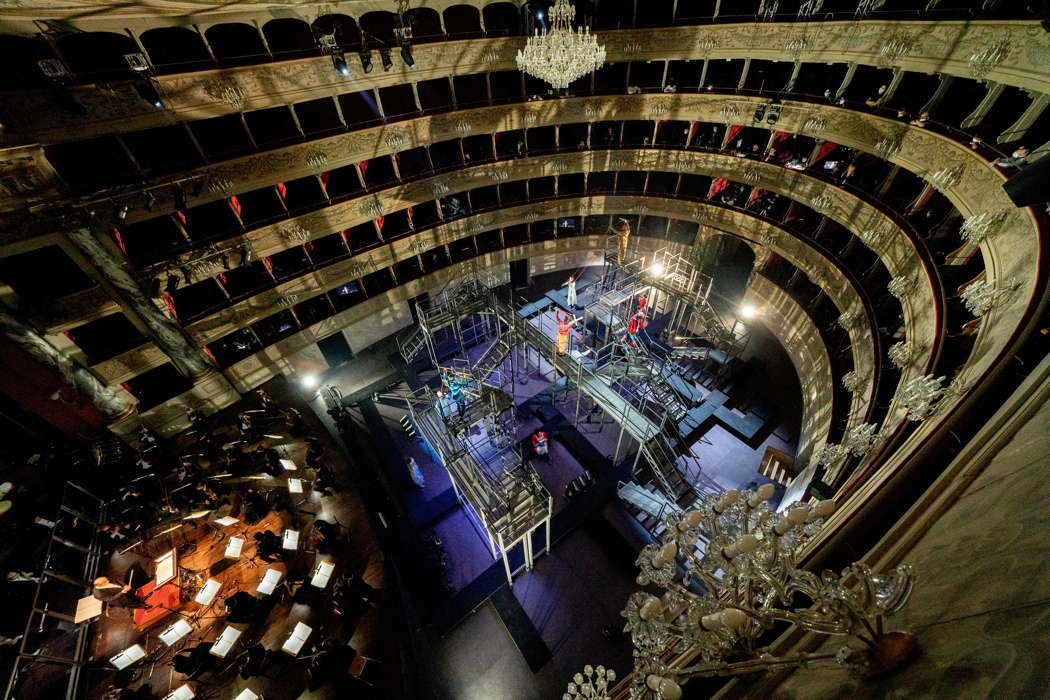
A scene from Donizetti's Marino Faliero at the 2020 Donizetti Opera Festival. Photo © 2020 Gianfranco Rota
Belisario is a tragedia lirica, also in three acts, to a libretto after Luigi Marchionni's adaptation of Eduard von Schenk's play. The plot is loosely based on the life of the famous general Belisarius of the sixth century Byzantine Empire. It was premiered to critical and popular success in 1836 at the Teatro La Fenice in Venice. The opera's popularity continued through the nineteenth century, with stagings in thirty-one cities both in Europe and America. After an 1899 performance in Coblenz, the opera disappeared. Modern productions have been rare. Revivals took place in 1969 at La Fenice, in 1970 at Bergamo, in 1972 in London, in 1973 in Naples, in 1981 in Buenos Aires and in 1990 at Rutgers University in New Jersey. Most notable amongst performers in the leading female role has been Leyla Gencer. Belisario had a new production as part of the Donizetti Opera Festival in September 2012 using the critical edition. Five CDs and a DVD are available commercially.
The opera deals with the lurid intrigues of the Byzantine Court against the well-meaning and victorious general Belisarius. Maybe for this reason, in 2005, it was performed in a much applauded production by Turkish State Opera in Istanbul.
With Martin Faliero, it is one of the very few Donizetti operas where the title role is a baritone. This concert production was much awaited because Plácido Domingo was scheduled as protagonist. He had to cancel a few days before the performance due to flu and was replaced by Roberto Frontali.
It is an impressive melodrama in the style of the time when it was composed. Donizetti poured music of the calibre of his Lucia di Lammermoor into the score of Belisario so that the shortcomings of its wayward plot and dramatic structure would matter less. Consequently, the Donizetti Opera Festival is to be congratulated for including it in its 2020 program as well as for opting for a concert version where music and singing outdo the weakness of the libretto.
Five great singers - Roberto Frontali as Belisario, Carmela Remigio as Antonina, Celso Albelo as Alamiro, Annalisa Stroppa as Irene and Simon Lim as Emperor Giustiniano - enthralled me in a succession of arias, duets, trios and concertato. They involved me for the strength of the music and the ability of rendering the inner aspects of the drama much more than for the intrigues detailed in the libretto.
Riccardo Frizza, the Festival's music director, conducted the Donizetti Opera orchestra. He is a good professional and the orchestra is an ensemble of serious instrumentalists. In Marin Faliero, they did not fully reach the depth of darkness I would expect. However, in Belisario they caught the variety of tints fully. The performance is well worth an addition to the CD catalogue.
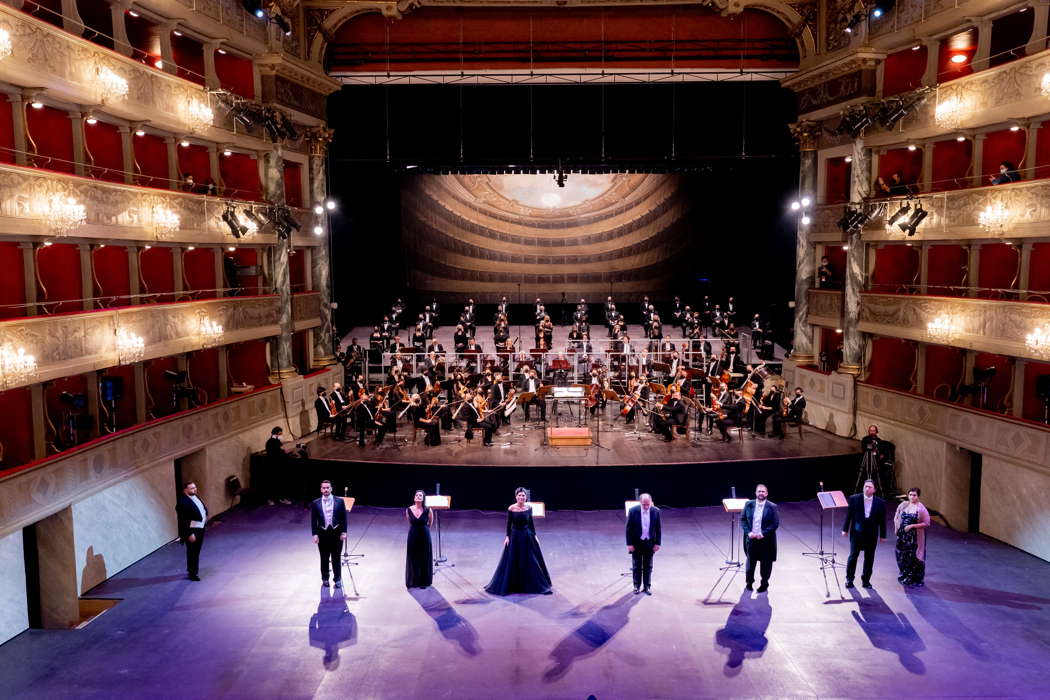
A scene from Donizetti's Belisario at the 2020 Donizetti Opera Festival. Photo © 2020 Gianfranco Rota
The third opera is a farce Donizetti composed when he was very young. The exact date of the first performance is not known, dating back to the carnival season in the year 1819 at the Teatro Vecchio in Mantua, with Fanny Eckerlin as Sabina. The work was unsuccessful. A second version of the opera took place at the Teatro Dolfin in Treviso in 1820. The last nineteenth-century production took place at the Teatro di Sant'Agostino in Genoa in the spring season of 1822, with the title I Provinciali (The Provincial People). This is the first performance in modern times. Part of the missing music (corresponding to the quintet 'Aura gentil che mormori') was completed by Elio, Rocco Tanica and Enrico Melozzi for the purpose of this revival.
The young Sabina (Gaia Montanari) is in love with Claudio (Giorgio Misseri) but is courted by Trifoglio (Fabio Maria Capitanucci), a schoolmaster, to whom her father Don Petronio (Omar Montanari) proposed her in marriage. To disguise her love, she passed a portrait of the young Claudius as that of the King to her grandmother (Manuela Custer) and then on his appearance in the village he was treated like a King. After various misunderstandings, Trifoglio decides to give up the girl's hand, also because she learns that the dowry does not consist of money but of various endowments of questionable value. Claudio, who is indeed a wealthy landowner, then decides to marry the girl by renouncing the dowry.
Young Donizetti was at the time under the influence of his mentor, Johann Simon Mayr (whose Le Due Duchesse was reviewed in this magazine on 23 September 2020). He was also influenced by Rossini's farces and opera buffa, often discussed in this magazine - eg on 8 August 2020. However, the opera lacks Rossini's panache and is somewhat long. A shorter, better focused opera would have been funnier and more theatrically effective. Nonetheless, it is a pleasant work by a young composer and if one delves into the score very, very carefully, the elements of future masterpieces such as Don Pasquale and L'elisir d'amore can be identified.
The production was perfect for TV and/or Web TV and would make a good DVD. The stage direction by Davide Marranchelli kept the action moving swiftly, and the sets by Anna Bonomelli and the costumes by Lina Riccardi were well conceived. Stefano Montanari conducted the Donizetti opera with elegance and brio.
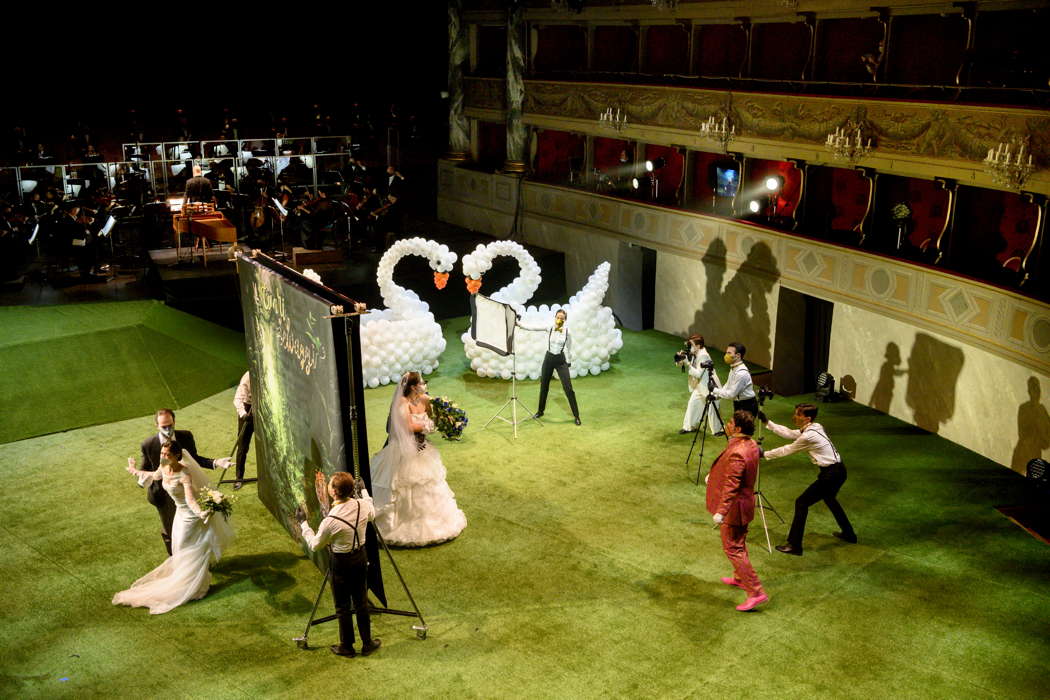
A scene from Donizetti's Le Nozze in Villa at the 2020 Donizetti Opera Festival
The singers were young and promising in general. Fabio Maria Capitanucci stood a few inches taller than his colleagues.
Copyright © 24 November 2020
Giuseppe Pennisi,
Rome, Italy

FURTHER LIVE CONCERT AND OPERA REVIEWS


